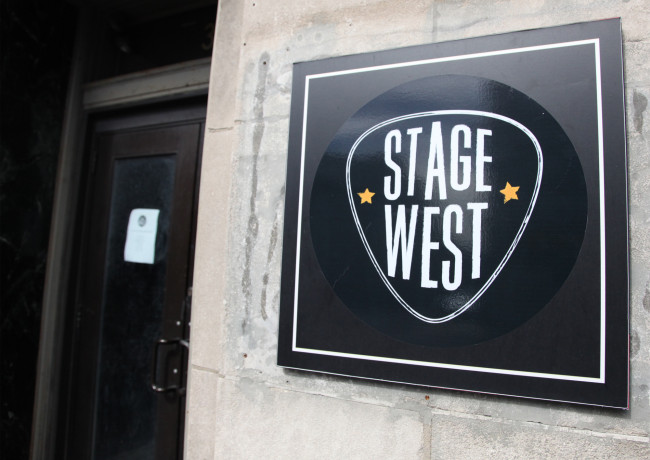NEPA music venues still await federal relief funds from Save Our Stages legislation

As part of the $900 billion pandemic relief package that Congress passed at the end of 2020, “$15 billion in dedicated funding for live venues, independent movie theaters, and cultural institutions,” according to a Dec. 20 statement from Democratic leaders Nancy Pelosi and Chuck Schumer. However, as February comes to a close, those businesses have not yet received those funds.
In fact, the Small Business Administration that will be distributing the money via Shuttered Venue Operators Grants hasn’t opened the application process and doesn’t even have a starting date scheduled. While everyone knows that the wheels of government turn slowly, time is running out for many venues that haven’t been open for nearly a full year.
The National Independent Venue Association, which includes several independent music venues and festivals in Northeastern Pennsylvania, was formed in April at the beginning of the COVID-19 shutdown and first proposed the Save Our Stages Act, leading an online campaign that helped citizens send 2.1 million emails to their elected officials and all 535 members of Congress that encouraged them to support its passage. Prominent artists like Alice Cooper, Katy Perry, Slash, Jimmy Buffett, Mavis Staples, Quincy Jones, and Jim James of My Morning Jacket publicly supported the SOS Act, and in October, YouTube Music and NIVA held a virtual Save Our Stages Festival, which featured 35 acts (including Foo Fighters, The Roots, Miley Cyrus, Dave Matthews, Jason Mraz, Macklemore, Marshmello and Demi Lovato, The Lumineers, and Rise Against) recording live from over 25 independent venues that raised $1,247,155 for U.S. venues.
The House of Representatives included Save Our Stages in the Heroes Act passed on Oct. 1, but the federal relief stalled in the Senate until December, when SOS was incorporated into the massive $900 billion bill that was eventually signed into law by President Donald Trump. When polled, 90 percent of NIVA members said they could close forever if they do not receive federal funds after six months, emphasizing that these “venues were the first to close and will be the last to reopen.” It is now long past that point.
Among NIVA’s over 3,000 members in all 50 states and Washington, D.C., that are waiting for this vital funding are the F.M. Kirby Center and Karl Hall in Wilkes-Barre, Stage West in Scranton and State College, the Sherman Theater in Stroudsburg, Mountain Sky in Jermyn, and ArtsQuest’s Musikfest Cafe and Levitt Pavilion at the SteelStacks in Bethlehem, as well as the annual Briggs Farm Blues Festival in Nescopeck and Musikfest in Bethlehem. From Pittsburgh to Allentown to Philadelphia to Lancaster, there are over 120 Pennsylvania members registered with the National Independent Venue Association, and many of them host theatre, stand-up comedy, and other events in addition to live music.
To fill this gap, “the NIVA Emergency Relief Fund, with the Giving Back Fund as its 501(c)3 fiscal sponsor, continues to raise money to assist the venues at greatest risk of permanently going under as we wait for the grants to be issued,” according to saveourstages.com, which goes on to note that the fund has “provided $3 million in critical short-term assistance for 153 independent venues and promoters throughout the U.S., allowing these small businesses to hold on as all of NIVA’s 3,000 members anxiously await funding from the new relief package.”
“Unfortunately, the need is still dire, as the NIVA Emergency Relief Fund received four times the requests for aid as it had funds to award. Donations to the NIVA Emergency Relief Fund are still being accepted. An additional $11 million is required to provide essential business-saving relief to all who have applied for emergency relief so far. Already, hundreds of venues have shuttered permanently since COVID-19 forced the industry to a standstill in March. As more time passes before federal emergency relief is received, venues could continue to disappear,” the website continues.
Both independent and corporately-owned venues in NEPA survived 2020 in various creative ways. Stage West produced a variety of drive-in concerts at the Circle Drive-In Theatre in Dickson City, which had never hosted live music before, as well as EDM shows in the parking lot of Montage Mountain in Scranton. The small Karl Hall in Wilkes-Barre joined up with the much-larger Mohegan Sun Arena at Casey Plaza in Wilkes-Barre Township to produce an all-day drive-in concert to benefit venues and nonprofits impacted by COVID-19, and the arena went on to host several more drive-in shows. The F.M. Kirby Center has been holding online auctions and hosting streaming shows with various national acts. Musikfest moved online this year, and the Sherman Theater has benefited from some community fundraisers. Mountain Sky used some of its 117 acres of land to farm corn and other produce to sell at local markets.
In November, NIVA also established the National Independent Venue Foundation, “a registered 501(c)(3) nonprofit that seeks to partner and fundraise through individual, corporate, and foundation donations to expand upon NIVA’s mission to preserve and nurture the ecosystem of independent live performance venues and promoters throughout the U.S. by also seeking to support a transparent, competitive marketplace serving a diverse and inclusive community of artists, fans, and industry workers.”
Hal Real, founder and CEO of World Cafe Live in Philadelphia, was named the president of this new foundation. On Feb. 11, NIVA announced the formation of its own advisory board to help both organizations “with their respective missions, preserving and nurturing the ecosystem of independent live venues and promoters throughout the United States. Advisory board members will share their diverse knowledge and professional expertise in streaming, ticketing, management and more to help NIVA and its members navigate through the remainder of this pandemic and rebuild the live entertainment ecosystem in a transparent, diverse, and inclusive way,” a press release stated.
“NIVA may have been founded amidst dire circumstances, but the future of the live industry and the people who inhabit it have always been top of mind. Officially expanding our coalition to include partners new and old, allows us to innately incorporate those who have stood by our side from the very beginning, like Boris Patronoff from See Tickets, and new voices that will help guide the future,” said Rev. Moose, NIVA executive director and managing partner of Marauder.
Board members include artists like Dave Grohl, Killer Mike, Quincy Jones, Christian McBride, Noelle Scaggs, and Jimmy Jam as well as executives and employees of See Tickets, Sony Music Publishing, Interscope/UMG, YouTube, Google, the RIAA, eTix, and more.
“When the pandemic first hit, it was clear the independent live music community would need to come together and rally for relief. Doing just that, a dedicated group of promoters set out to form NIVA and we proudly stepped up to support them. The accomplishments to date have been remarkable, and I’m thrilled to serve what I believe will be an important organization for years to come,” said Boris
Patronoff, chair of the NIVA Advisory Board and CEO of See Tickets (North America).
Some venues have been able to reopen in 2021, but indoor crowds must be limited and socially distanced to follow state and federal health regulations, which isn’t always a profitable model to operate under. While millions of Americans are currently being vaccinated, it remains uncertain when most places will be safe enough to run as they did almost one year ago.
by Rich Howells
Rich is an award-winning journalist, longtime blogger, photographer, and podcast host. He is the founder and editor of NEPA Scene.



